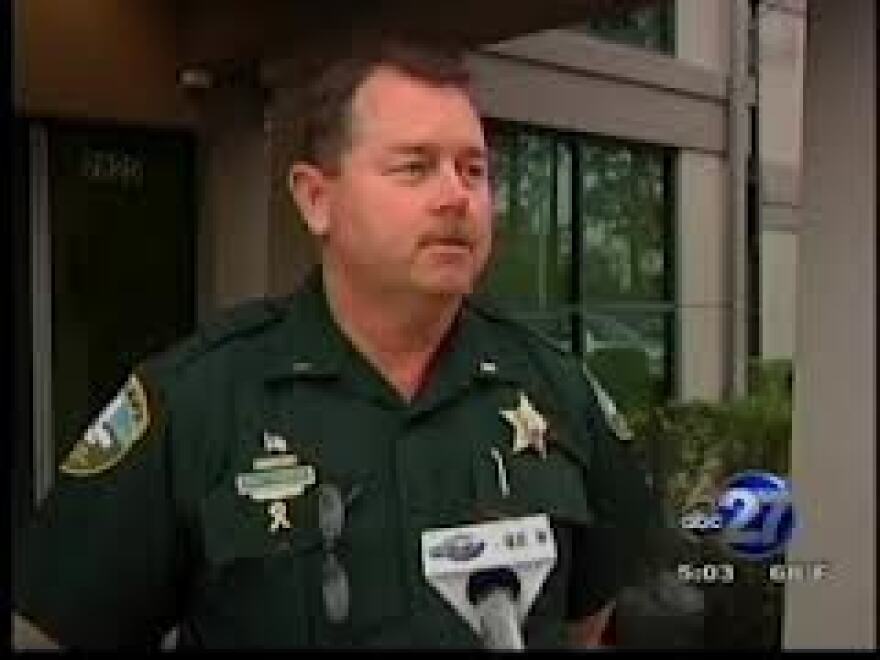Days after the Sandy Hook Elementary School shooting in Newtown, Connecticut, Leon County Superintendent Jackie Pons greets students as they leave from class at Sable Palm Elementary School.
“With that going on, I felt it was important to get our leadership team out and to see my children and all the kids, and reassure them that schools are a safe place to be," he says as parents drive by and pickup their kids.
In the wake of the shooting, districts started reviewing safety rules and procedures. Those policies were tested when, right before the winter break, a Leon High School student brought a gun on campus.
“They isolated the student, they got him out of class, he was actually in class, removed him from the class, and were able to confirm that he was in possession of a handgun. He actually had it on his body,” said Lieutenant James McQuaig, spokesman for the Leon County Sheriff's Office.
The student was charged with two felonies for carrying an unloaded semi-automatic handgun. The school’s resource officer was the first responder to the call, and National Association of School Resource Officers President Kevin Quinn, says that kind of response makes a big difference:
“The fact that I’m already here on the campus, you’ve just removed 4-5 steps of a response time. You’ve taken 4-5 minute police response time to get to your school and deal with an issue, to 2-3 seconds just for me to walk down the hallway.”
School resource officers are sworn law enforcement agents who work in schools. Just like regular police officers, many of them carry weapons. Right now the officers are mostly in middle and high schools. Quinn says the Association supports expanding the program to elementary schools. But he adds it can only happen with the support of local communities.
Shortly after the Newtown shooting, the National Rifle Association called for armed security guards in every school. The suggestion was largely scorned by NRA critics who say the organization is being insensitive to the tragedy, but the NRA’s stance isn’t much different from current school resource officer programs, where local districts and law enforcement agencies team up to put sworn officers in schools. Some, like Florida State Criminology Professor Gary Kleck, say what schools need is a lesser police presence:
“If anything, I’d say back off of a police presence in most places except in the most exceptionally violent schools, which are violent week-after-week, and not just when a mentally disturbed person goes berserk," Kleck said.
He believes police officers are too expensive and divert resources from other areas of communities that may need more support. He says if someone in a school has to be armed, it should be a teacher or administrator who has been trained.
Kleck says shootings like those in Newtown are rare. According to the National Center for Education Statistics, school crime rates, which peaked at about 38 per thousand schools in the early ‘90’s, have fallen to just four-per-thousand schools.
Other critics against school resource officers say they drive up the criminalization of things like bad behavior or fights that don’t result in injuries. National Association of School Resource Officer’s President Kevin Quinn says he’s aware of those concerns. But he says the program dates back to the 1950’s, and the school officers are more than just armed guards patrolling the halls:
“School resource officers are considered members of the faculty. Law-related education, teaching in the classrooms when requested, and an informal counselor for students having law-related or legal issues, and that even goes to teachers and staff members and everyone else. You’re really integrated into the school.”
A 2011 report crafted by researchers at the University of South Florida and Loyola University noted quote, “an indication that the presence of SROs may to some degree serve as a deterrent for serious crime.”
Prior to the NRA’s statement on the Newtown shooting, Leon County School Superintendent Jackie Pons along with the County Sheriff wrote a letter to Governor Rick Scott asking for additional funds for more officers. And Republican Representative Mike Fasano is also asking Scott to include extra funding in the state budget for the programs.
Meanwhile, Hillsboro County Schools has announced it’s voluntarily putting resource officers in its 150 elementary schools for the rest of the school year. And in Alachua County, police and sheriff officials will temporarily be in all the districts public elementary schools.


